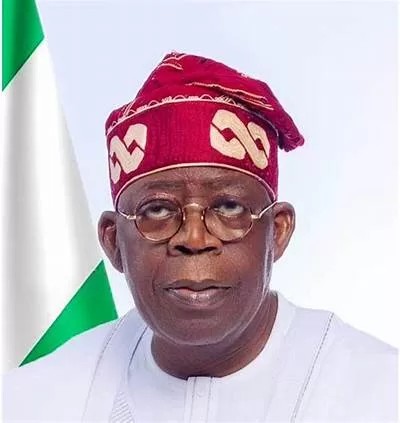
The United States Trade Administration has painted a grim picture of Nigeria’s healthcare system, describing it as underdeveloped and lacking modern medical facilities.
In a report published on its Trade Administration website, it stated that Nigeria’s health indicators, under President Bola Tinubu, remain one of the worst in Africa.
“Healthcare infrastructure in Nigeria is still underdeveloped and lacks modern medical facilities,” the report stated.
According to the department, “The country’s healthcare indicators are some of the worst in Africa. It has one of the fastest growing populations globally with 5.5 live births per woman and a population growth rate of 3.2 percent annually. It is estimated to reach 400 million people by 2050, becoming the world’s fourth most populous country.”
The report also noted that “Medical professionals are in short supply, with only about 23.3 doctors per 100,000 population below the WHO recommended 100 doctors per 100,000 population, partially due to the massive migration of healthcare workers overseas.”
Highlighting the economic impact of the nation’s weak health sector, the report stated that “Nigeria loses at least $2 billion every year to medical tourism, according to the Nigerian Medical Association (NMA). India accounts for more than half of this outflow.”
It further stressed Nigeria’s overwhelming reliance on foreign medical equipment. “Nigeria depends largely on imports for medical devices, with over 98 percent of its equipment needs supplied by imports. Local production is very limited and consists largely of syringes,” the report added.
The department also pointed out the outdated administrative systems in the country’s hospitals. “Most Nigerian hospitals still store patient records manually using traditional paper methods.”
It emphasised that regulatory and financial challenges continue to hamper healthcare delivery. “Medical devices and pharmaceutical products must be registered with the NAFDAC before they can be imported into Nigeria. This process can be painfully long and rigorous, involving the submission of several documents. Product counterfeiting is rampant, and rights enforcement is weak. Nigeria has limited funds for its healthcare procurements and projects that require overseas inputs.”
The report underscores the urgent need for investment, policy reform, and modernization in Nigeria’s health sector to meet the needs of its rapidly growing population.
This development comes even as the country’s resident doctors threaten to commence strike from November 1.
The Nigerian Association of Resident Doctors (NARD) accused the Federal Government of owing doctors and other health workers across the country an estimated ₦38 billion in accumulated allowances.
President of the association, Dr. Muhammad Suleiman, made the claim on Monday during a press briefing in Abuja, where he presented the resolutions of NARD’s Extraordinary National Executive Council (NEC) meeting. The meeting followed the expiration of the association’s 30-day ultimatum to the Federal Government to address long-standing welfare concerns.
He disclosed that resident doctors have already commenced ward rounds and patient handovers ahead of a planned nationwide total and indefinite strike, which is set to begin on Saturday, November 1, 2025.
“There are allowances of over two years, there’s 18 months, there’s seven months, there’s four months, there’s eight months. There’s an allowance error that is over 10 years old. There’s a failure to review even the basic salary of doctors in this country for 16 years,” he was quoted by Punch Newspaper as saying.
He added, “For instance, in the outstanding 25-35 per cent Consolidated Medical Salary Structure review, there is the accoutrement allowance for all doctors in the health sector. For all the health care workers, I think the outstanding owed is about N35-38bn. If it’s just resident doctors, we’re just talking about maybe N400m. But for all doctors in Nigeria, it could be N600-800m.”
According to him, the government’s inaction persists despite the association’s earlier warning strike and subsequent extensions of deadlines meant to allow time for resolution.
He recalled, “Following the suspension of our five-day warning strike on September 14, 2025, the last NARD Annual General Meeting, held in Katsina State, graciously extended the two-week ultimatum given to the Federal Government by an additional 30 days to address the 19-point demands as outlined in the AGM communiqué.”
“This grace period has since elapsed, yet the Federal Government has failed to demonstrate the political will necessary to address the legitimate concerns of Nigerian resident doctors.”
The NARD president stated that during its October 25 Extraordinary NEC meeting held via Zoom, the association reviewed the government’s response and found it unsatisfactory.
 Premium News
Premium News